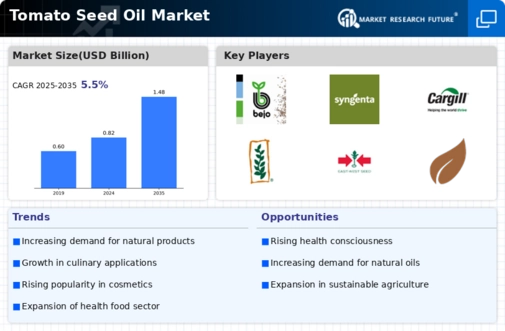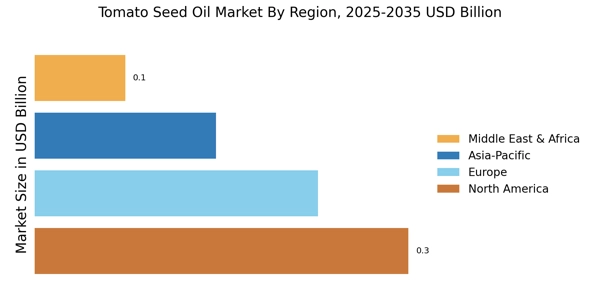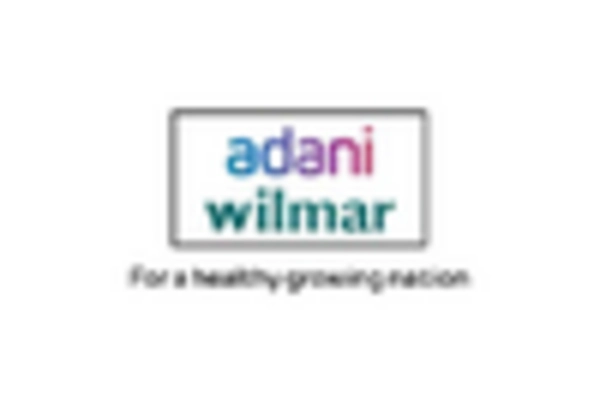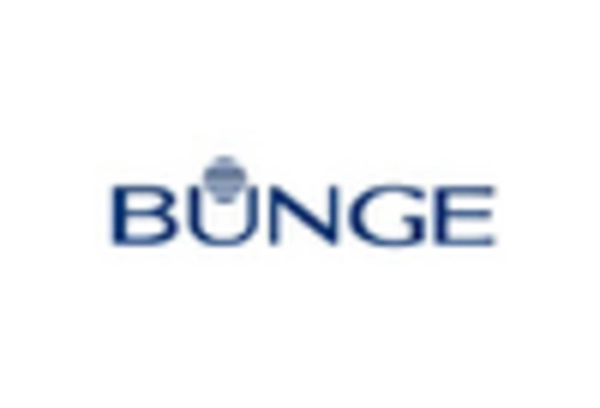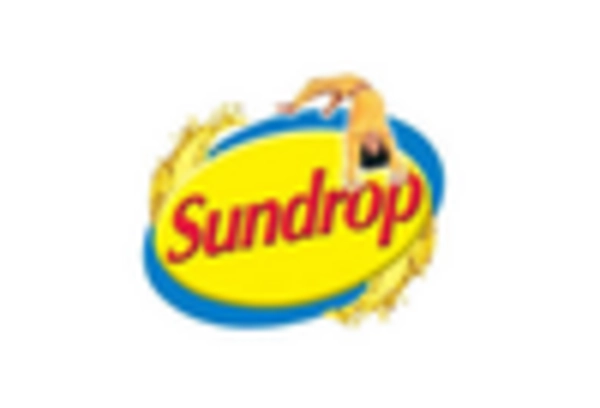Expansion of the Food Industry
The Tomato Seed Oil Market is poised to benefit from the ongoing expansion of the food industry, particularly in the realm of healthy cooking oils. With a growing emphasis on health and wellness, many consumers are seeking alternatives to traditional cooking oils. Tomato seed oil, with its unique flavor profile and health benefits, is becoming an attractive option for chefs and home cooks alike. Recent market analysis suggests that the cooking oil segment is expected to witness a growth rate of around 5% annually. This expansion is likely to create new opportunities for tomato seed oil producers, as they cater to a market that increasingly values both taste and nutrition.
Innovation in Product Development
The Tomato Seed Oil Market is witnessing a wave of innovation in product development, driven by the need for differentiation in a competitive landscape. Manufacturers are exploring new applications for tomato seed oil, ranging from culinary uses to skincare formulations. This diversification is essential for capturing the interest of various consumer segments. Recent Industry expert's suggest that the beauty and personal care sector is increasingly incorporating tomato seed oil into their products, enhancing their appeal through its natural properties. As companies invest in research and development, the Tomato Seed Oil Market is likely to see a proliferation of innovative products that cater to evolving consumer preferences.
Rising Demand for Natural Ingredients
The Tomato Seed Oil Market appears to be experiencing a notable surge in demand for natural and organic ingredients. Consumers are increasingly gravitating towards products that are perceived as healthier and more environmentally friendly. This trend is particularly evident in the food and cosmetics sectors, where tomato seed oil is recognized for its rich nutrient profile, including antioxidants and essential fatty acids. Market data indicates that the natural cosmetics segment is projected to grow at a compound annual growth rate of approximately 10% over the next five years, further bolstering the Tomato Seed Oil Market. As consumers become more aware of the benefits of natural ingredients, the demand for tomato seed oil is likely to continue its upward trajectory.
Growing Interest in Sustainable Practices
The Tomato Seed Oil Market is increasingly aligned with the growing interest in sustainable agricultural practices. As consumers become more environmentally conscious, there is a rising demand for products that are produced sustainably. Tomato seed oil, often a byproduct of tomato processing, exemplifies a resource-efficient approach to agriculture. This not only reduces waste but also provides an additional revenue stream for farmers. Market trends indicate that sustainable products are gaining traction, with consumers willing to pay a premium for items that align with their values. This shift is likely to enhance the Tomato Seed Oil Market, as producers adopt more sustainable practices to meet consumer expectations.
Increased Awareness of Nutritional Benefits
The Tomato Seed Oil Market is significantly influenced by the rising awareness of the nutritional benefits associated with tomato seed oil. Rich in vitamins, antioxidants, and fatty acids, this oil is gaining recognition for its potential health benefits, including skin health and anti-inflammatory properties. As consumers become more educated about the advantages of incorporating tomato seed oil into their diets, the market is likely to see a corresponding increase in demand. Recent studies indicate that the functional food sector, which includes oils like tomato seed oil, is projected to grow at a rate of 8% per year. This trend suggests a promising future for the Tomato Seed Oil Market as health-conscious consumers seek out beneficial ingredients.


